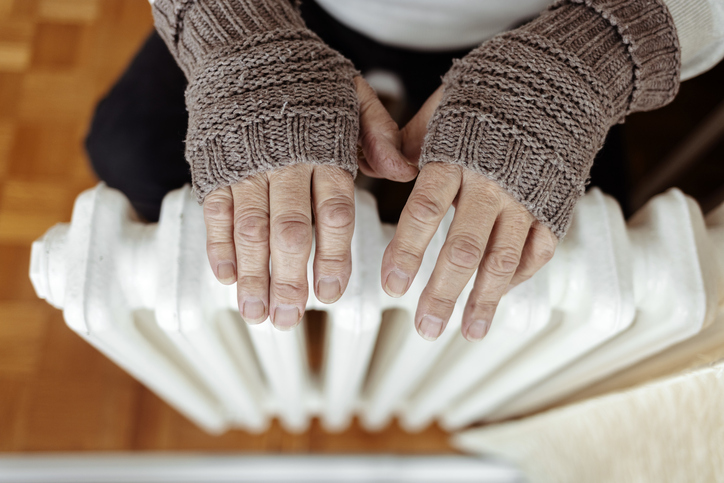Ombudsman sees 60% increase in complaints on heating and hot water
7 February 2023
Focus on cases relating to heating and hot water to drive learning as the Ombudsman’s reveals nearly two in three cases are upheld.

The Housing Ombudsman has highlighted key learning from heating and hot water cases, including good practice when attempting a boiler replacement and continued concerns over communal heating.
The insight from our investigations, together with the real-life experiences of residents, generates important learning for landlords.
The Ombudsman has seen a significant increase in heating and hot water cases, with 1,600 received in 2021/22 and 1,491 received already in 2022/23. This is an increase of 60% compared to the previous year.
This year the Ombudsman has made a maladministration finding in 59% of cases relating to heating and hot water, showing there are fundamental issues within the sector.
This focus includes a case where a landlord left their resident having to sofa surf in order to live in a warm house and not offering appropriate compensation.
These cases come two years after our Spotlight report on complaints about heating, hot water and energy in social housing, which delivered 40 recommendations including providing clear information around heating and responding appropriately to the needs of vulnerable residents. Residents’ concerns with heat networks and other communal heating systems were central to its recommendations.
Our online casebook, published every two weeks, now totals more than 3,100 decisions and show the range of issues we can consider as well as the type of outcomes following an investigation. The landlord in each case is identified. Among the decisions published featuring a heating and hot water issue are:
- Citizen Housing’s response to the need for a replacement boiler after a gas safety check (ref 202112942). The landlord acted appropriately and carried out annual gas safety check as required, capped the gas supply due to ‘immediate danger’, and provided heating alternatives during the cap. It also listened and acted on resident concerns about the gas pipes and tried to accommodate their wishes.
- A maladministration finding for L&Q (ref 202113369) after it left a resident to sofa surf in order to live in a warm home, after failing to respond adequately to problems with a residents heating system. The organisation failed to log the repair to the ground/air source heat pump and subsequently took eight months to resolve. Compensation then did not cover the full time the resident suffered with this issue.
- A case involving Southern Housing Group (ref 202010169) concerning a communal heating and hot water system. As the landlord is responsible for heating and hot water within the property, we found service failure as it was unacceptable that recurrent issues impacted on the resident’s ability to have adequate supply. Failings included missed appointments; repairs delays/not resolving the issues in line with published standards; and complaint response delay.
- A district heating charge complaint with Gentoo Group (ref 202100778) in which there was no maladministration after the landlord kept the resident up to date throughout the complaint and provided transparency on costs where it could. With the cost-of-living crisis in the forefront of people’s minds, keeping residents up to date with any charges and responding appropriately to their concerns shows good practice.
Spotlight on heating and hot water report – February 2021
Richard Blakeway, Housing Ombudsman, said: “We are handling unprecedented volumes of cases on heating and hot water. Given the energy crisis and time of year, it is essential for landlords to learn and improve from complaints.
“These cases give a small glimpse of the type of cases we’ve seen concerning heating and hot water. We’re seeing landlords make the same errors in these cases and it is imperative the sector reflects on the learning from these cases.
“Too often landlords are not fixing these problems first time around, which is then causing distress to residents. Communication can often be poor too, not keeping residents up to date on their repair and not adhering to complaints timescales.
“We have also seen landlords not provide alternative heating when a boiler isn’t working and therefore residents left without heating for extended periods of time. Another important piece of learning is around vulnerabilities in these cases. Landlords have to record and respond to vulnerabilities given the detriment it can cause.
“A selection of good and poor practice means this guide gives a full picture on how landlords can get this right and learn from service failure. This includes continued issues for residents with heat networks or other communal heating.
“As heating becomes more under the spotlight with the drive towards decarbonisation, landlords should ensure they keep doing the basics well and ensure when they are developing net zero strategies, that residents are at the heart of their thinking.”
